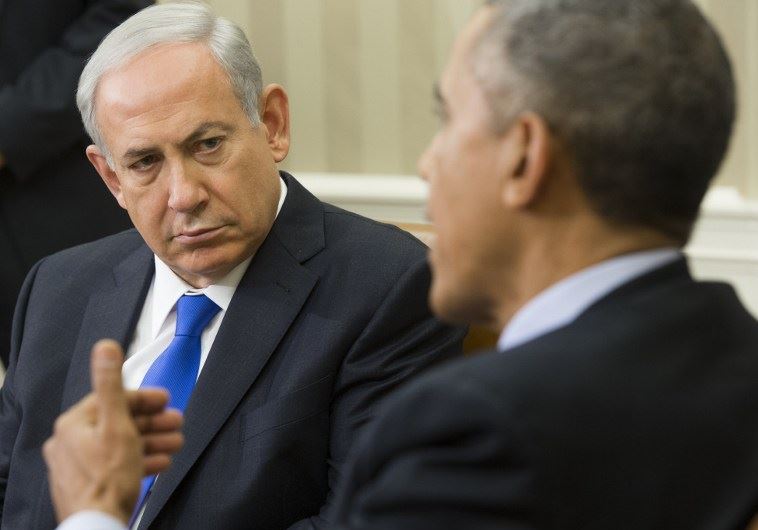Jerusalem Post Editorial: Costly deal
The critiques do not follow the sour grapes model, but are based on genuine concerns for Israel’s security.
 Prime Minister Benjamin Netanyahu (L) listens to US President Barack Obama in the Oval Office(photo credit: AFP PHOTO)
Prime Minister Benjamin Netanyahu (L) listens to US President Barack Obama in the Oval Office(photo credit: AFP PHOTO)